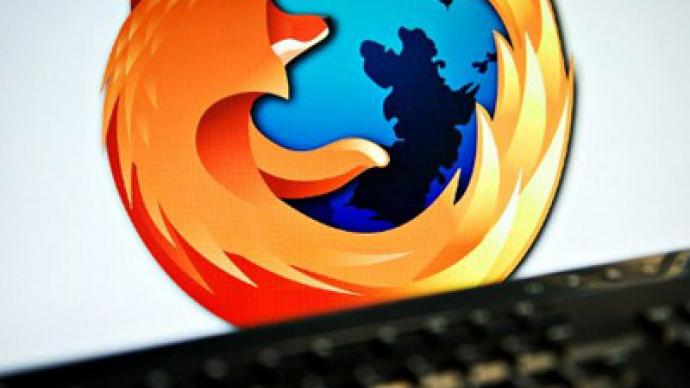Firefox creators Mozilla attack Congress; denounce CISPA

Silicon Valley’s Mozilla Corporation has tasked themselves with extinguishing a fire, and no, it’s not what you have in mind.
Mozilla, the Mountain View, California-based developers responsible for creating the hugely successful Firefox Web browser, has issued a statement publically condemning the Cyber Intelligence Sharing and Protection Act, or CISPA. In a memo sent to Forbes’ data security department on late Tuesday, Mozilla’s privacy and public policy official explains that its newly-publicized stance is not one that encourages online cyber attacks, but merely establishes that the company is in favor of protecting the rights of its users.“While we wholeheartedly support a more secure Internet, CISPA has a broad and alarming reach that goes far beyond Internet security,” reads the statement. “The bill infringes on our privacy, includes vague definitions of cybersecurity, and grants immunities to companies and government that are too broad around information misuse. We hope the Senate takes the time to fully and openly consider these issues with stakeholder input before moving forward with this legislation.”Mozilla’s issues with CISPA mirror opposition that was voiced last week on Capitol Hill during debates over the legislation. Rep Jan Schakowsky (D Illinois) said the cybersecurity bill “still fails to adequately safeguard the privacy of Americans” and that the government needs to be able to “combat the serious threat of cyber attacks and still insure that we are protecting our computer systems and the civil liberties of Americans.”Jared Polis, a Democratic rep for Colorado, issued similar concerns, stating, “CISPA represents a massive government overreach in the name of security” and that “Any America that values his or her privacy should be concerned.”At this point, however, the US Senate is now the only Washington entity that stands between CISPA and the desk of President Barack Obama. In a hurried vote last Thursday, the US House of Representatives passed the bill in its current form much to the chagrin of lawmakers like Schakowsky and Polis, essentially leaving approval from the other side of Congress the only thing that the bill needs to be brought to the White House. Advisers for President Obama have issued a statement on their own part insisting that the administration will recommend that the commander-in-chief vetoes the bill if it is brought to the Oval Office, although critics have already come out to call the move another example of election year pandering. The White House issued a similar statement last year regarding the National Defense Authorization Act for Fiscal Year 2012, or the NDAA. Originally the Obama administration said that the president had issues over the bill’s provisions regarding the indefinite detention of American citizens, although Obama eventually inked his name to the paper on New Year’s Eve.This time around, condemnation is indeed present in regards to CISPA’s future, but Mozilla’s just-released memorandum could be a catalyst in bringing more critics out of the woodwork. Although opponents of CISPA have certainly come out against the bill for weeks now, Mozilla’s statement is among one of the first released by a major Internet entity. Other Silicon Valley giants such as IBM, Facebook and Microsoft still stand in favor of the bill. In recent days, it was reported that Microsoft switched stances and would formally oppose CISPA. This week, however, Digital Journal reports that a spokesperson for the company now confirms that the official Microsoft stance on CISPA is “unchanged,” returning Bill Gates’ billion-dollar corporation to the supportive side of CISPA.That isn’t to say, of course, that widespread opposition of CISPA is far from rampant. In the recent days since CISPA’s passing, critics have continued to speak up against the act. The Electronic Frontier Foundation, presidential hopeful Ron Paul and the American Civil Liberties Union have all taken an anti-CISPA stance, as well as the popular web forum Reddit.















